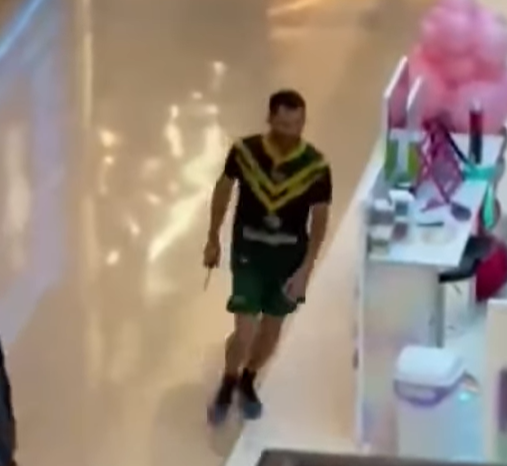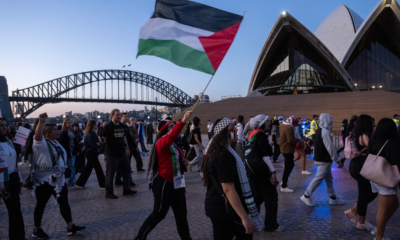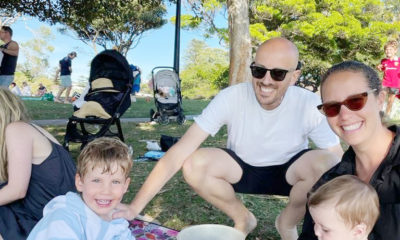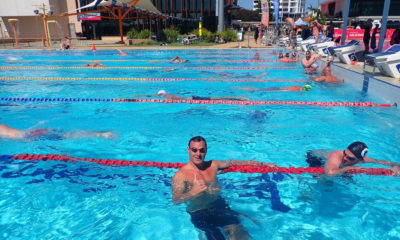
News

‘Too close’ say SA expats of Bondi mall massacre
Jewish South African expat Dr Carly Levetan and her family visit the massive Westfield Bondi Junction mall in Sydney every Saturday for her son’s weekly jujitsu class. More than a mall, the centre houses children’s extra-curricular activities, doctors’ offices, gyms, and cinemas.
On the morning of Saturday, 13 April, a man named Joel Cauchi reportedly ate breakfast opposite to where Levetan’s son’s class was held. Just hours later, after Levetan and her family had left the mall, Cauchi went on a senseless stabbing spree, killing five women and one male security guard, and injuring about 12 others.
“It’s a super-busy place, especially on the weekends,” says Levetan. “Everyone I know was either there recently, or on the day of the attack. It could have been any of us.” Her friend, Dr Candyce Levin, says her husband was at the mall just 30 minutes before Cauchi attacked. “We go to that centre all the time,” she says. “It’s the equivalent of the Waterfront in Cape Town in terms of how often we go there. This was scary, and way too close for comfort.”
Many Jewish South African expats told the SA Jewish Report that they had been at the mall mere hours or minutes before the attack, often with children in tow. “My sister-in-law and niece were there two hours before it happened,” says Craig Nudelman. “It was pretty intense. Our babysitter who came later that night is Israeli, and she said it was like being in Israel again. She was quite shocked.”
Yvonne Weinberg, who is believed to be a Jewish South African expat, was stabbed but survived. Her husband, Isaac Weinberg, told news outlets outside a hospital, “They said [she was] stabbed in the top-right corner of her back. She thought she got punched, and then there was blood. Apart from that, she’s okay. She’s alive, and that’s all that matters.”
Vic Alhadeff, a former Australian Jewish leader and South African expat, says the community has been feeling “exceptionally vulnerable” in the aftermath of 7 October. “The terrible incident in Bondi Junction certainly compounded that. The immediate reaction was shock and grief for the families of those whose lives were brutally and randomly cut short. Compounding the angst was the fact that the motivation of the assailant was unknown, the very real fear of terrorism, and the fact that the shopping centre is frequented by many members of the community.
“Adding to the consternation was the baseless accusation that a Jewish man – originally from South Africa – named Ben Cohen was the murderer,” says Alhadeff. “The claim was circulated on mainstream and social media, prompting thousands of comments and causing undue distress to the family and the community.”
A new immigrant from South Africa, who asked not to be named, saw images on TV of her children’s friends running out of the mall and being interviewed after the attack. “Everything starts and ends at ‘the Junction’, and when you first arrive in Sydney, you’re there on a daily basis as there’s a ‘home affairs’ office there,” she says.
“As a newcomer to Sydney, the attack was a massive shock,” she says. “I don’t know who is more shocked – those who have been here for many years, or those who recently came here. What has been very difficult for people to grasp is the feeling that ‘it could have been me, and would have been me, and quite frankly maybe should have been me’ because everybody has been at Westfield Bondi Junction on the weekend, and many people were there minutes or hours before.
“As a parent, it was a huge jolt, because the biggest advantage of moving to Australia is the freedom and independence for my children. From a very young age, kids here are out and about on their own, and this incident has really shaken that feeling, at least for me and my kids.”
“The stabbing occurred at a time when Australian multiculturalism is being tested like never before,” says Alhadeff. “This nation has been home to Jews since day one of non-indigenous settlement, and Jews have served as head of the Australian Defence Force, as governor-general, and on government front benches.
“Australia 2024 is definitely not Germany 1933, yet for Jews born after the Holocaust, the tsunami of anti-Jewish hatred which swept Australia since 7 October is the most all-pervasive and terrifying in our lives and, in fact, in our country’s history,” he says.
“Racist epithets which were previously whispered are trumpeted brazenly, signs outside an apartment block declared, ‘Kill Jews’ and ‘Jew lives here’, a vehicle was spotted with Nazi registration plates, and hundreds of Jewish artists and academics were doxxed. This in a country which has been home to thousands of Holocaust survivors, in fact, the highest percentage of any community in the world, outside Israel.”
Author, women’s rights activist, and South African expat Joanne Fedler was flying to South Africa when the attack happened. “I landed and switched on my phone, and there were 50 messages asking if I was okay. It’s my local shopping centre. My daughter and her partner both work at Apple there. My husband says the place is now deserted and eerie, with police tape everywhere.”
She also feels that something has shifted. “For me, this is a symptom of a culture that has really lost its way, and I don’t just mean in Sydney or Western society. I think the glorification of violence and the events of 7 October in which Hamas broadcast its rampage against young people [is a factor]. What happened at the mall was a tiny version of what happened at the Nova festival and those kibbutzim. These things aren’t unconnected at all. I feel when you live in a society where people are excusing and even considering that what was done on 7 October is justified, it glorifies violence.”
Levetan says the incident highlights the urgent need worldwide for more resources to be devoted to mental health, the need for it to be taken more seriously, and the importance of ensuring that patients don’t fall through the cracks.











Selwyn Wener
April 18, 2024 at 7:44 pm
How do you draw a comparison between this and what happened in Israel?
This was a deranged person not a political statement.
Steven Silverstone
May 2, 2024 at 11:15 am
What is your journalist trying to say with this article.There seemingly was no antisemitism involved as the perpetrator has psychology issues according to his family.
What antisemitism link is being alluded to here.This type of tragedy occurs way too regularly as recently in London.Your article I believe is sensationalism.